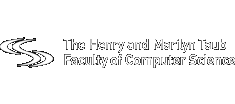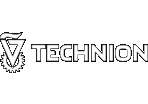BLOG
All we need is trust: Reducing the friction between academia and industry
The academic system across the world is inherently built on trust. Think carefully: What prevents a professor from spending the rest of his days lying on the beach drinking beer the day after receiving the coveted tenure? What guarantees that a PI will not abuse her Ph.D. students forcing them to perform uncreative routine tasks? How can one be sure that the findings published in a scientific paper are real and not fudged to receive a promotion, tenure, awards, and other career advancements? The key ingredient that makes the system work is trust.
Academia is unique in its ability to unite people across a variety of cultures, languages, religions or lack thereof, political views, and personal tastes and preferences. It is especially precious in our era of tiding nationalism and sectorial radicalization. It is a relatively small and closed ecosystem in which the effect of each action is almost directly and immediately evident. Try to abuse your students a few times — the voice will spread and nobody will come to work with you anymore. Dare cheat in your papers and you will lose your credibility forever. Trust is a foundational axiom of the academic system — abroad and at home.
It is, therefore, rather astonishing that when it comes to the interface of academia with money, the system suffers an unexpected phase transition. Be it the commercialization of inventions conceived and developed within the walls of an academic institution, joint research projects with the industry, or faculty entrepreneurial activities — they all face a very similar attitude: how do we ensure that we do not end up with a bad deal? Academic institutions suddenly become unreasonably greedy and try to optimize the worst-case scenario. This typically results in draconian intellectual property policies and endless limitations on the faculty engagement in external consulting and entrepreneurial undertakings. In a sense, these policies are founded on the presumption of guilt: they tacitly assume that a professor would invariably cheat the system if given the opportunity, and try to create a water-tight closure of every possible loophole. Such is the situation in many academic institutions across the globe. In Israel, the situation is remarkably dramatic in this regard.
The effect of the worst-case scenario approach is devastating. Many talented researchers who develop useful and sufficiently mature technologies do not bother to commercialize them knowing how tortuous is the path. Investors keep off ventures founded from academia because of the heavy overheads, unpredictable liabilities, and uncertainties about future IP rights. The industry prefers to conduct research internally, and when necessary, to simply hire the relevant professors or entire research teams, luring them with uncompetitively high salaries. Paradoxically, these draconian policies increase the number of abuse incidents they were intended to mitigate: faculties knowing that playing by the rules would often raise insurmountable obstacles are forced to cut the corners against their will.
When it comes to money, the academic system adopts a metric that is antithetical to its raison d’être. In doing so, it forgets that its main purpose is the pursuit of knowledge, not the pursuit of wealth. In a sense, academia’s task is to transform money into knowledge, while the business world does the opposite. However, instead of playing this pivotal complementary role to the industry, academia seems to try to compete with the later — often in an unconstructive way.
I firmly believe that by extending the trust-based foundational principles of academia to its interface with the industry will greatly reduce the friction forces that prevent many successful research results from reaching the outside world. My recent interaction with the new Technion administration makes me believe and hope that this awareness starts penetrating into the policymaker minds. I intend to promote it among the researchers and academic institution administrations alike. I am going to show with concrete examples and numbers at hand that the adoption of friendlier policies will lead to significant benefits at the individual, institutional, and national levels.
My conviction is based on my own experience of over a decade at the boundary between academia and industry. As a scientist, I know how long is the way from an equation on the board until a working prototype. As a businessman, I know how big is the gap between that and a sellable product or a viable business. As a serial entrepreneur, I saw very closely what it takes to license a technology from or start up a company with the participation of an academic institution in Israel and abroad. As a tech executive, I have seen both successful and unsuccessful cases of R&D projects involving industry and academia. Having worked with many investors and being an angel investor myself, I also know how the world looks like from the perspective of a venture capitalist.
To summarize this position statement, I will reiterate its main thesis: trust is the best oil that will reduce the unnecessary amount of friction that presently exists between academia and industry. It will also act as a beacon of light that we so desperately need as a Nation in these times. All we need is trust.





